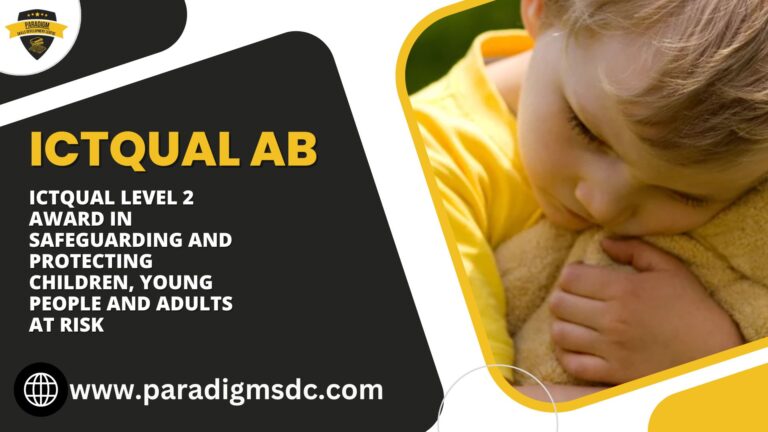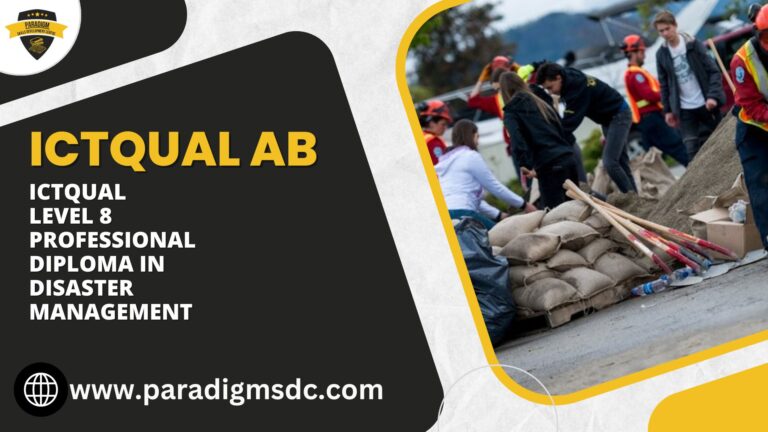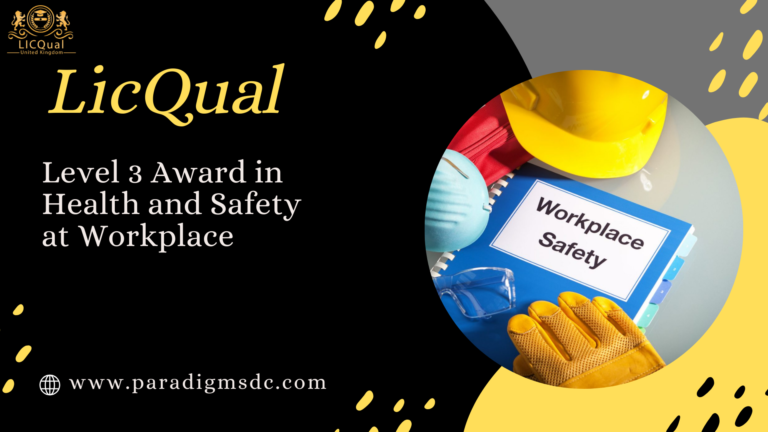Course Introduction
The ICTQual Level 5 Diploma in First Response Emergency and Urgent Care is an advanced qualification designed for professionals aiming to excel in the field of emergency and urgent care. This comprehensive course provides in-depth training in advanced emergency medical techniques and urgent care management, equipping learners with the skills necessary to handle complex and high-pressure situations effectively. It is ideal for those looking to take their career in pre-hospital emergency care to the next level.
Course Overview
The ICTQual Level 5 Diploma in First Response Emergency and Urgent Care offers an intensive learning experience that blends theoretical knowledge with extensive practical training. The course covers a wide array of topics essential for advanced emergency care, including advanced life support, trauma management, and urgent care protocols. Learners will engage in interactive sessions, simulations, and real-world scenarios to develop the proficiency required for advanced emergency medical response.
Course Study Units
- Introduction to Emergency Response Systems
- Emergency Medical Care
- Trauma Management
- Emergency Pharmacology and Medications
- Clinical Governance and Quality Assurance
- Disaster Preparedness and Response
- Psychological Aspects of Emergency Care
- Ethical and Legal Considerations
- Leadership and Teamwork in Emergency Response
Learning Outcomes
Upon completing the ICTQual Level 5 Diploma, learners will be able to:
Basic Life Support (BLS)
- Introduction to Emergency Response Systems:
- Understand the roles and responsibilities of first responders within the emergency response system.
- Identify key components of emergency response organizations and their interdependencies.
- Explain the importance of effective communication and coordination in emergencies.
- Demonstrate knowledge of emergency response protocols and procedures.
- Analyze case studies to evaluate the effectiveness of emergency response systems in different scenarios.
- Emergency Medical Care:
- Recognize signs and symptoms of common medical emergencies.
- Demonstrate proficiency in providing basic life support interventions.
- Perform systematic patient assessment and prioritize care based on urgency.
- Administer first aid treatments under established protocols.
- Apply critical thinking skills to adapt care interventions to the needs of individual patients.
- Trauma Management:
- Assess and manage traumatic injuries using a systematic approach.
- Implement appropriate interventions to control bleeding and maintain airway patency.
- Apply principles of spinal immobilization and fracture management.
- Prioritize care in multi-trauma scenarios based on the severity of injuries.
- Collaborate with multidisciplinary teams to provide comprehensive trauma care.
- Emergency Pharmacology and Medications:
- Describe commonly used medications in emergency care and their indications.
- Calculate medication dosages accurately and administer drugs safely.
- Recognize potential adverse reactions and contraindications to medication use.
- Demonstrate proper techniques for medication administration via various routes (e.g., oral, intravenous, intramuscular).
- Monitor patients for therapeutic response and adverse effects following medication administration.
- Clinical Governance and Quality Assurance:
- Explain the concept of clinical governance and its role in ensuring quality and safety in healthcare.
- Identify key components of quality assurance programs in emergency care settings.
- Participate in quality improvement initiatives to enhance service delivery and patient outcomes.
- Apply evidence-based practice guidelines and protocols to standardize care practices.
- Comply with regulatory requirements and accreditation standards to maintain organizational compliance.
- Disaster Preparedness and Response:
- Assess risks and vulnerabilities associated with natural and man-made disasters.
- Develop emergency response plans and protocols tailored to specific disaster scenarios.
- Coordinate resources and personnel effectively during disaster response efforts.
- Implement strategies to mitigate the impact of disasters on communities and infrastructure.
- Evaluate the effectiveness of disaster preparedness measures through scenario-based exercises and drills.
- Psychological Aspects of Emergency Care:
- Recognize the psychological impact of emergencies on patients, families, and first responders.
- Provide emotional support and crisis intervention to individuals experiencing trauma or acute stress reactions.
- Apply principles of psychological first aid to promote resilience and coping skills.
- Employ self-care strategies to maintain mental and emotional well-being in high-stress environments.
- Collaborate with mental health professionals to address psychosocial needs in emergency settings.
- Ethical and Legal Considerations:
- Identify ethical dilemmas and legal issues commonly encountered in emergency care practice.
- Apply ethical decision-making frameworks to resolve moral conflicts and dilemmas.
- Uphold principles of patient autonomy, beneficence, and nonmaleficence in clinical practice.
- Maintain confidentiality and privacy rights of patients while adhering to legal requirements.
- Understand the legal obligations and liabilities associated with emergency care provision.
- Leadership and Teamwork in Emergency Response:
- Demonstrate effective communication skills in a team-based environment.
- Collaborate with interdisciplinary teams to coordinate patient care and response efforts.
- Apply principles of leadership to facilitate decision-making and problem-solving during emergencies.
- Foster a culture of teamwork and mutual support within emergency response organizations.
- Evaluate personal and team performance to identify areas for improvement and professional growth.
Course Benefits
- Advanced Competence: Gain expertise in advanced emergency and urgent care techniques.
- Career Advancement: Qualify for senior and specialized roles in emergency medical services.
- Enhanced Decision-Making: Improve clinical decision-making and patient management skills.
- Certification: Receive a recognized qualification that validates your advanced capabilities.
- Professional Growth: Access continuous professional development and specialization opportunities.
Who is this Course For?
The ICTQual Level 5 Diploma in First Response Emergency and Urgent Care is suitable for:
- Paramedics and advanced EMTs looking to elevate their practice.
- Healthcare professionals seeking advanced training in emergency care.
- Military medics and remote healthcare providers.
- Nurses and physician assistants working in emergency and urgent care settings.
- Individuals with a Level 4 FREC certification aiming to progress to a higher qualification.
Future Progression
After completing the ICTQual Level 5 Diploma, learners can further advance their careers by pursuing:
- ICTQual Level 6 Diploma in Paramedic Practice
- Advanced practitioner courses in critical care and trauma management
- Specialized certifications in advanced cardiac life support (ACLS) and pediatric advanced life support (PALS)
- Degree programs in emergency medicine or paramedic science
- Leadership roles within emergency medical services and healthcare settings
Elevate your emergency care skills with the ICTQual Level 5 Diploma in First Response Emergency and Urgent Care. This course provides the advanced training and knowledge required to excel in high-stakes environments, ensuring you are fully prepared to make a significant impact in emergency medical services.







